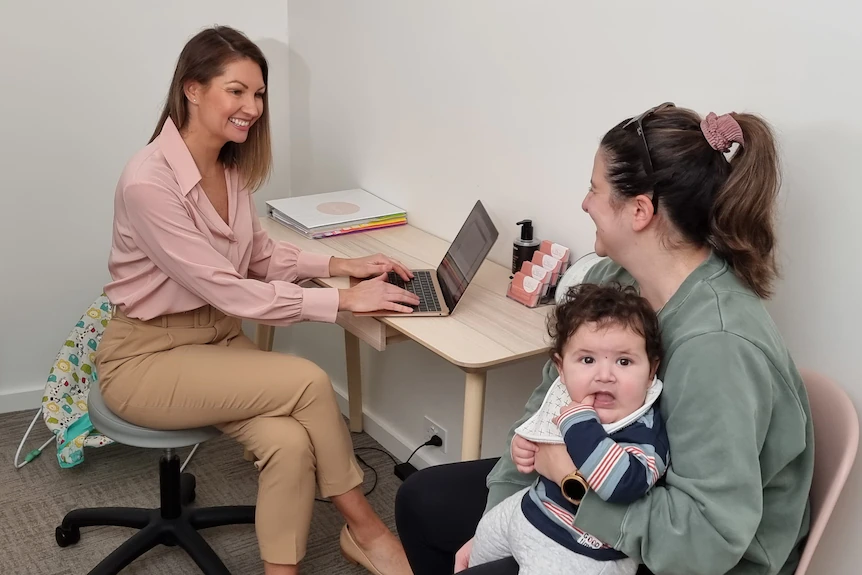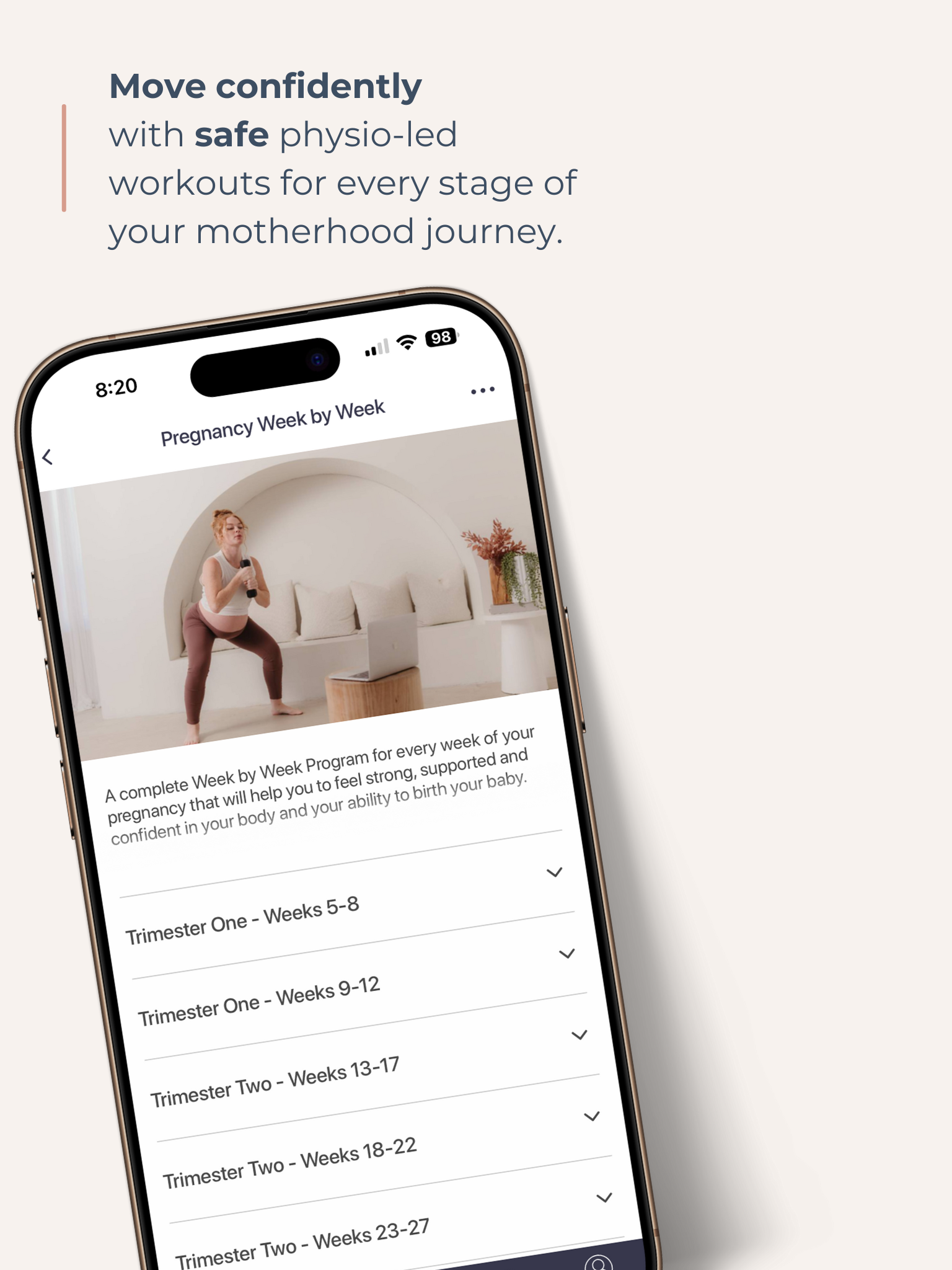Preparing for Birth as a Neurodivergent Woman: Doing it Your Way

Written by Dr Rosie Pajak - Perinatal Psychologist and Founder of The Birth Healing Collective
As a perinatal psychologist, I always support my clients to consider their individual needs when it comes to giving birth. Whether those needs relate to a previously difficult birth, their specific fears or long-held hopes and dreams, preparing for birth with them in mind sets the foundation for a positive experience.
If you are a neurodivergent woman, birth might come with its own challenges, but you also bring your own unique strengths to the table. Approaching birth with the knowledge you have about your brain and body - and figuring out how to advocate for your needs - can make a huge difference.
Here’s a straightforward guide on how to approach birth preparation as a neurodivergent woman in a way that can help make the entire experience feel more manageable and less overwhelming. It’s all about self-awareness, clear communication and a birth plan that considers all your needs.

1. Set up the birth environment you need.
Birth is an intense experience, with many internal sensations as well as the sights, sounds and smells of the environment to manage. This can feel overwhelming for every birthing individual, so it can help you think about how you usually process sensory input. Do certain sounds, lights, smells, or textures make you agitated? What helps you feel more at ease and grounded?
Knowing what helps your body feel good can make it easier to set up your birth environment in a way that suits you. For instance, dim lights or a quiet space might be particularly important if you are prone to feeling overstimulated. Music might help, or it might be too distracting. If you know you might find it difficult to manage the sounds of beeping machines or the smell of hospital disinfectant, brainstorm ways you could reduce their impact.

2. Make a birth plan that works for you and share it.
Writing a birth plan can help you clarify your birth preferences, but it’s also a key communication tool. Your birth plan can help ensure that everyone involved in your birth is aware of your wishes, choices and needs:
When writing your birth plan, you can include sections on:
- Sensory considerations: Let your team know which sensory inputs you find helpful or distressing and what can be done to help you feel more comfortable. If you don’t want to be touched without express permission, pop that in your birth plan.
- Communication preferences: How would you like your team to communicate with you? You might prefer written instructions or minimal verbal interactions during the birth, so make that clear to your birth team ahead of time.
- Pain management: Do you have specific preferences for pain relief? Whether that’s medication, water or other techniques, discuss your preferences with your team and pop them in your plan.
- Flexibility: Keep in mind that a birth plan can include sections on induction preferences, various pain relief options and your preferences for a caesarean section. Mapping out different pathways your birth could take can help you adapt if things don’t go as planned, and make sure your preferences continue to be taken into account.
And don’t wait until you’re in labour to share your birth plan… starting the conversation early can help you build trust in your team.

3. Build an amazing support team.
Above all, we need to feel safe and secure when giving birth, so the people providing your care are very important. Your birthing team should be prepared to support you in a way that makes sense for you, so let them know how you are feeling and what you need. Share any hopes or fears you hold about birth and find what they can offer to make you more comfortable.
Continuity of care (when your antenatal and labour care is provided by one professional) can provide a greater sense of consistency, which can be particularly valuable for neurodivergent mums. It is so important that the professionals supporting you understand your needs, so if you feel continuity of care would suit you best, ask how and where you can access it.
Your birth partner is the other key person at the birth and their role is incredibly important. Not only can they support you physically during the birth, they will be the person in the room who knows you the best making them a wonderful advocate for you. Make sure they are fully aware what is in your birth plan and feel confident to ask questions. They can remind staff of your needs and gather information about risks and benefits of suggested interventions, helping you make decisions as the birth progresses.

4. Use sensory tools to stay grounded and calm your nervous system.
Birth can be sensory overload for anyone, but especially for those with sensory sensitivities. It’s helpful to come up with a toolkit of includes strategies to soothe your nervous system. Simple grounding exercises (like counting all the green items in the room) can help bring you into the present moment and provide a neutral focus for your attention. Mindfulness, deep breathing or visualisations can also be useful, helping you feel more in control during an otherwise intense experience.
If you know certain sensory items help you stay calm, bring them with you from home! This might be something like a fidget, soft blanket or a favourite smell. It’s all about what helps your body find its way back to calm.

5. Think beyond the birth for a positive start to parenthood.
The shift to motherhood is a big transition. Adjusting to so much change can feel intense and newborns are unpredictable. Try to think ahead about what you might need to maintain some stability. How could you set things up at home in ways that would make this transition smoother for you?
Some mums benefit from holding a gentle structure to their days, so there is some sense of a predictable routine around the unpredictability of the baby. You may need to think practically about how you can get some quiet time, a shower and some extra sleep. It can also be good to consider what could help you manage the sensory experience of breastfeeding or holding your baby close for long periods of time (lovely, but not always comfortable!).
Think about who you want to be around to support you – whether its family, friends or professionals. In the early weeks, you’ll want to focus on getting to know your baby, recovering from birth and catching up on sleep, so you’ll need a lot of help with almost everything else. Remember it’s okay to minimise other social visits during this time, rather than feel overwhelmed by doing too much too soon.
Lastly, trust your instincts… you are allowed to birth your baby your way.
Birth might feel like a big unknown, but you know your body and your mind better than anyone. You are allowed to navigate birth in a way that feels right for you. Your birth team are there to support you, so let them know about your needs and ask what they can do to help make your birth experience as comfortable. With clear communication and the right support, you can put things in place for a much more positive experience of birth.
For more info and resources on supporting neurodivergent parents in birth, definitely check out @neurodivergentbirth and @midwives_for_neurodiversity. The lovely Sarah Harrower has also created some wonderful affirmation cards for neurodivergent pregnant parents here.
About Dr Rosie
Dr Rosie Pajak is a perinatal clinical psychologist and founder of The Birth Healing Collective. She has a range of resources and supportive programs for parents preparing to give birth again after traumatic birth experiences available here. You can follow her @birth_healing_collective.

Get your Free Physio-led Pelvic Floor and CoreWorkouts
Download three free videos for either pregnancy or postpartum.




